ASARECA Private Sector Dialogue generates critical inputs into the African Conference on Agricultural Technologies discourse
BY BEN MOSES ILAKUT
KIGALI, RWANDA—”Countries don’t fail because they lack policies to facilitate agricultural productivity and open up access to markets. They fail because they lack strong political will to ensure technologies from research are profitable.” This is one of powerful messages that was delivered during the Private sector Dialogue on Enhancing the Commercialization and Scaling of Climate Smart Agricultural (CSA) Technologies and Innovations to the Last Mile in Kigali, Rwanda, on June 11, 2025. The Dialogue was convened by ASARECA in collaboration with the Ministry of Agriculture and Animal Resources (MINAGRI), Rwanda, and Rwanda Agriculture and Animal Resources Development Board (RAB).
Coming from Rwanda’s Minister of Agriculture and Animal Resources, the message resonated among participants at the Dialogue, which was one of the key sessions during the Premier African Conference on Agricultural Technologies convened by the African Agricultural Technology Foundation (AATF) in collaboration with Rwanda’s Ministry of Agriculture at the Kigali International Convention Centre from June 9-12, 2025.

Call for joint concerted efforts
Addressing participants at the Dialogue, the Minister, Dr. Mark Cyubahiro Bagabe noted that transforming food systems does not only take the effort of the Governments, but rather concerted efforts by individuals, the private sector, researchers and all involved in one way or the other. “The private sector is not merely a stakeholder. It is a strategic partner in scaling of CSA innovations to the last mile,” Dr. Bagabe explained. “We are all connected to agriculture because we need food. We can do a lot more than we think we can if we decide to innovate.”
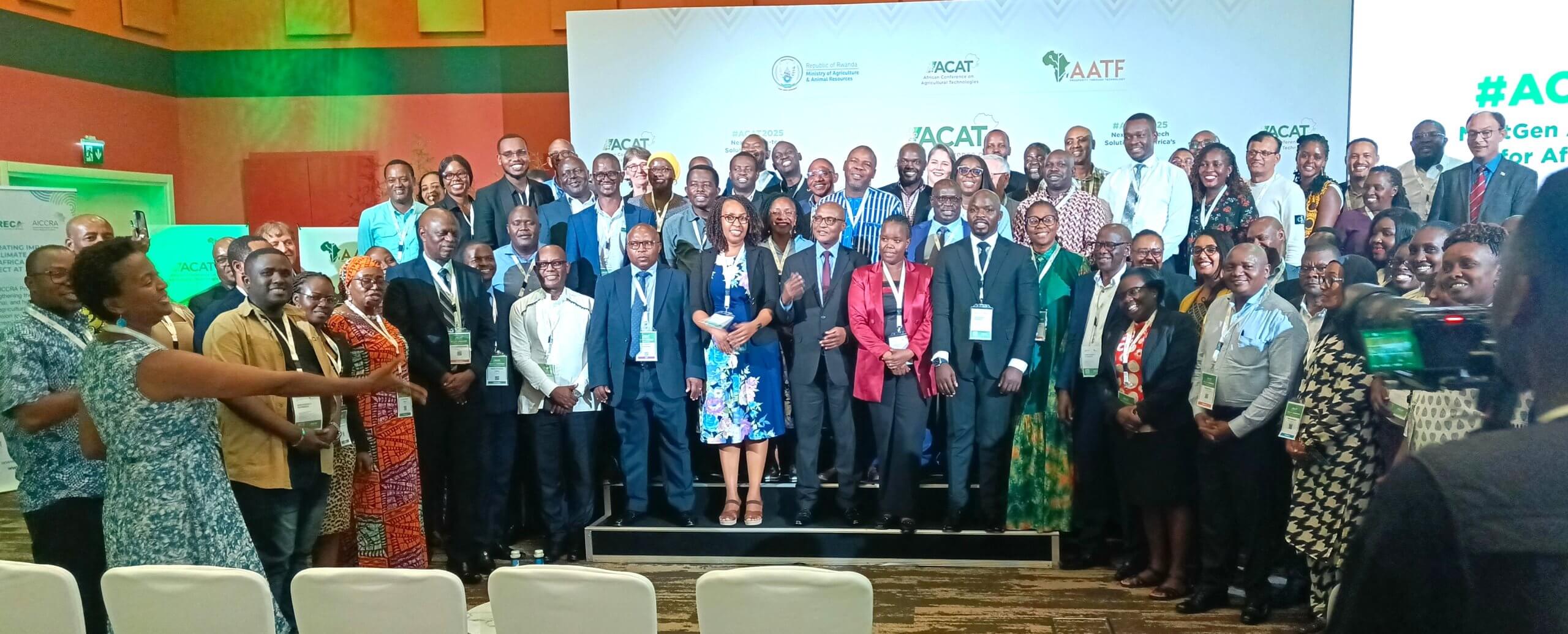
Harmonize research and development via ASARECA
The Minister urged the Agricultural Research for Development (AR4D) Community to join ASARECA in harmonizing the conduct of Agriculture to achieve economies of scale. “This requires a combination of smart policies, private sector innovation, and regional collaboration, the Minister said. “Transforming food systems demands inclusive, scalable, and sustainable technologies, especially benefiting youth, women, and vulnerable communities.”
He urged participants to: identify approaches to enhance smallholder access and adoption of technologies; explore investment and partnership opportunities such as blended finance and public-private collaboration; establish policy and regulatory enablers for cross-border trade; support institutions to scale innovations; strengthen agro-dealer networks; and increase farmers’ willingness to pay for services.

Inclusive Dialogue
The Dialogue brought together 88 participants from the private sector, farmer organizations, youth organizations, academia, Ministries of Agriculture, National Agricultural Research Institutes, International Research Organizations, Non-Governmental Organizations, and Development Partners among others. Some of the key areas discussed included mechanisms for addressing bottlenecks to commercialization of CSA innovations; harnessing emerging opportunities for private companies to scale CSA innovations; providing a conducive policy environment for private sector actors; and strengthening regional and national private sector forums involved in agricultural innovation.

European Union and World Bank support
The Dialogue was financed through the Comprehensive Africa Agriculture Development Programme ex-pillar IV (CAADP-XP4) Programme funded by the European Union under the Development Smart Innovation through Research in Agriculture (DeSIRA) initiative and managed by the International Fund for Agricultural Development (IFAD). It also received funding from the Accelerating Impacts of CGIAR Climate Research for Africa (AICCRA) Project funded by the World Bank and implemented by the CGIAR in collaboration with ASARECA. The AICCRA project aims to strengthen technical, institutional, and human capacities to enhance transfer of CSA-relevant information, decision-making tools, and technologies in support of scaling efforts in Africa.
Exemplary ASARECA work
Rwanda Agriculture and Animal Resources Board Director General Dr. Telesphore Ndabamenye celebrated the partnership between ASARECA and RAB in scaling new potato varieties among smallholder farmers in Rwanda in partnership with the Private Sector. Dr. Ndabamenye expressed RAB’s commitment to partnerships and innovation, emphasizing their impact on improving potato seed access, advancing technology adoption, and empowering youth. He gave an example of the Commercialization and De-risking for Agricultural Transformation (CDAT) project, a loan-financed initiative supported by the World Bank and implemented by RAB since 2022 as a strong illustration of partnership commitment. CDAT project aims to: increase irrigation use and commercialization among producers and agribusinesses in priority value chains and expand access to agricultural finance for cooperatives, commercial farmers, and small and medium size agricultural enterprises.
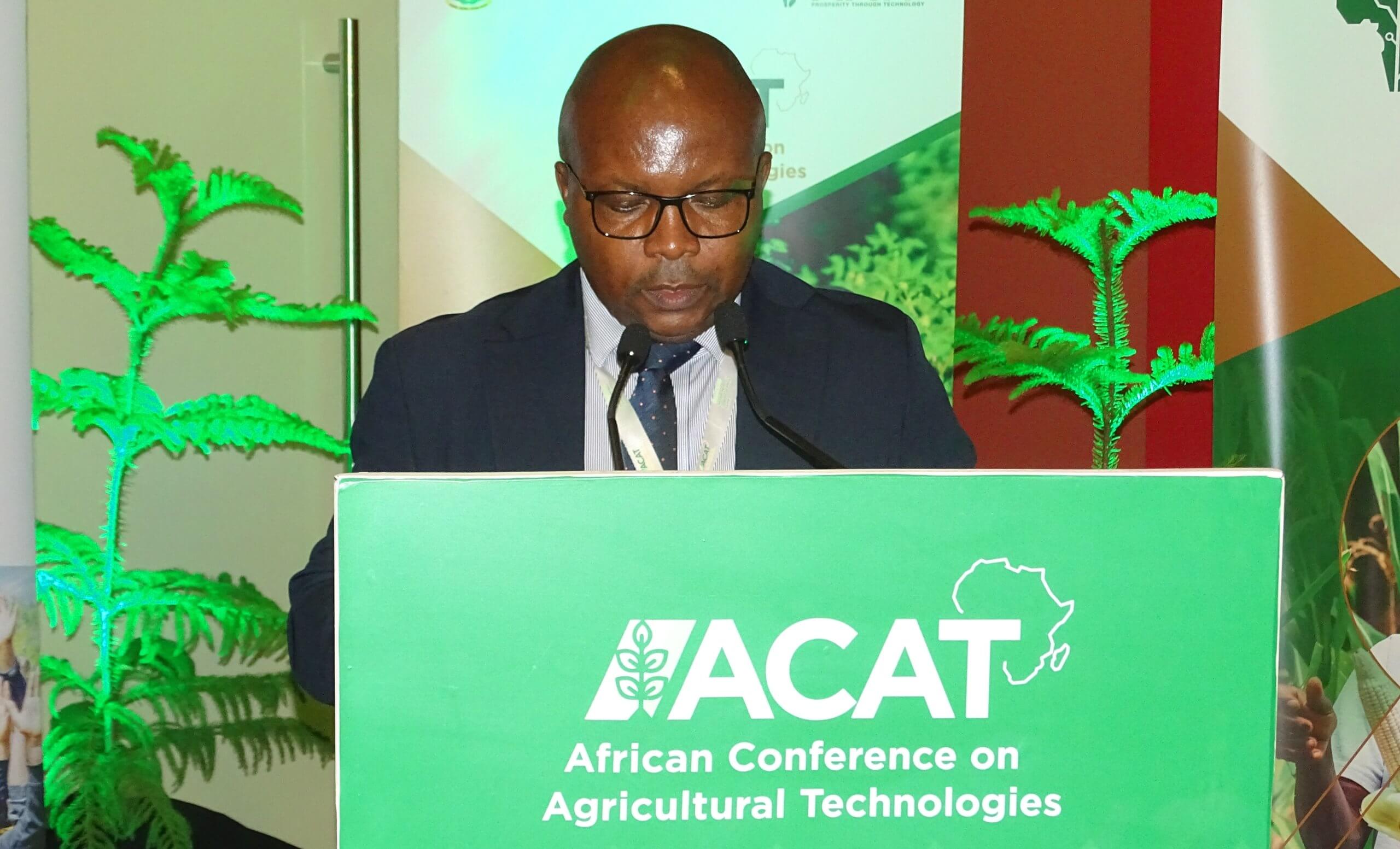
Integrate Private sector role in National Investment Plans
ASARECA Programme Officer for Policy, Ms. Julian Barungi urged African Governments to ensure their National Development Plans and National Agriculture Investment Plans recognize the critical role of the private sector in agricultural transformation. Ms. Barungi reminded researchers, policy leaders, the private sector that the Kampala CAADP Strategy and Action Plan (2026-2035) recognizes the critical role of the private sector in agrifood systems transformation.
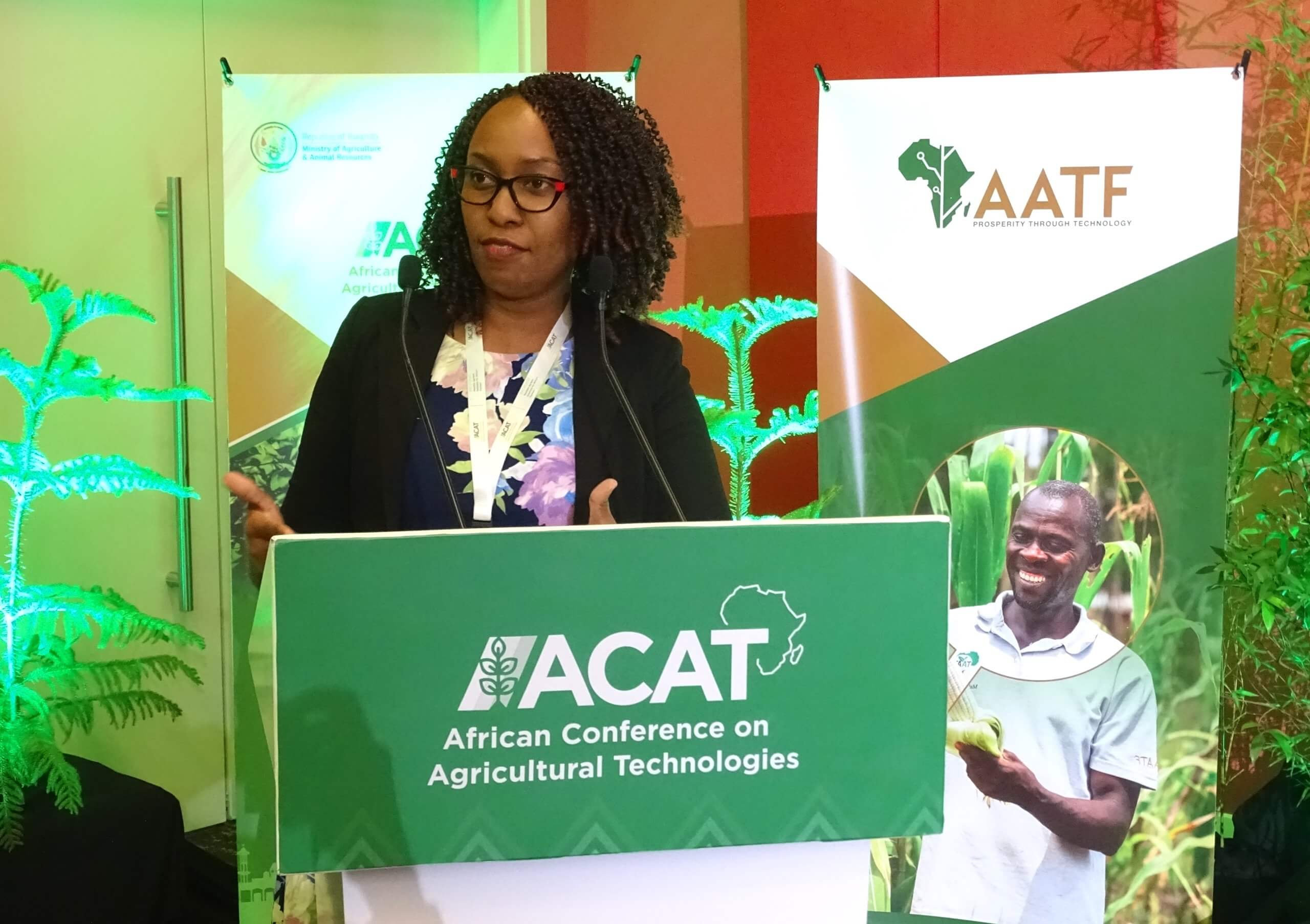
Ms. Barungi noted that one of ASARECA’s core mandates is ensuring that agricultural technologies reach the last mile. “ASARECA is cognizant of the fact that the private sector is a key partner in scaling agricultural technologies,” She noted. “Regional dialogues convened by ASARECA are aimed at facilitating private sector engagement with technology developers, innovators and farmers to jointly address key challenges to scaling agricultural technologies, sharing experiences and lessons.” She observed that developers of agricultural technologies should under no circumstances be content with the value of their creations until the technologies reach the farmer, addresses their needs and transforms their livelihoods. “Short of that, the developer will not have achieved much,” she asserted.
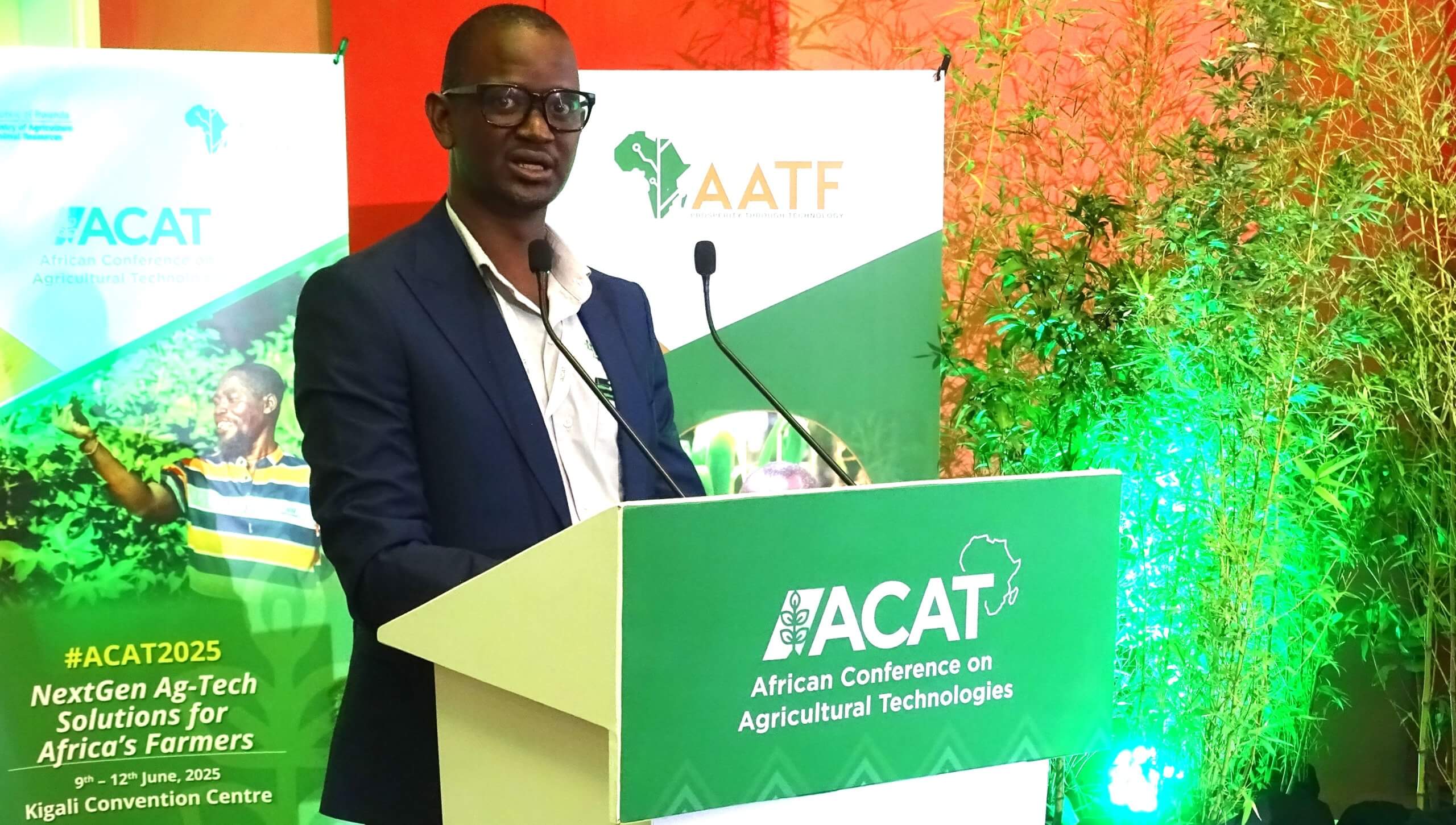
Highlights of the discussions
Through speeches, plenary presentations and discussions, panelists and the audience delved into contemporary policy issues affecting AR4D. Some of the highlights include:
Bundled Service Models for Commercializing Climate-Resilient Agricultural Technologies: The discussion around this model by Acre Africa showcased how innovations have been bundled and deployed to radically commercialize and disseminate CSA technologies, and enhance livelihoods of smallholder farmers in Tanzania, Kenya, Rwanda, Nigeria and Zambia. The model has realized behavioral changes in the farming communities including: (i) high trust in village champions and systems; (ii) high willingness after payout experience; (iii) proactive planning, better seed use, improved yields, post-harvest handling and adoption of new farming techniques as a result of the GAP training; and (iv) willingness to pay a higher premium for better coverage especially because of access to credit.
Unlocking private sector financing for CSA technologies and bridging the investment gap: This discussion by Ms. Paques Sidonie Kouam-Gwet (Investment Lead, Global Green Growth Institute (GGGI) Regional Center for Africa), focused on leveraging financing to assuage the challenges of limited access to risk-tolerant capital. The discussion delved into opportunities for public climate finance to scale proven solutions.
Leveraging regional trade agreements: This discourse delved into the influence of regional trade agreements in the movement of agricultural technologies and seed varieties across borders. The discussion revolved around harmonizing seed variety lists and quality standards to boost seed markets.
Investment areas for private companies looking to scale CSA technologies: This discussion brought to the table some of the priority areas for private sector investment. These included water supply and irrigation; water harvesting and storage; climate-resilient planting including shade trees; post-harvest loss reduction technologies including shelling and drying equipment, storage and warehousing; renewable energy; climate resilient livestock development; fertigation equipment, insect proof netting; direct seeding equipment; custom-hiring services; production of compost; climate resilient technologies; and public-private partnerships.
Effective climate-smart practices applied on large scale mechanized farming operations: This session shared insights into the benefits of conservation agriculture. It highlighted practices such as no-till farming and smart rotation of cereals with legumes as simple building blocks of profitable climate-resilient agriculture.
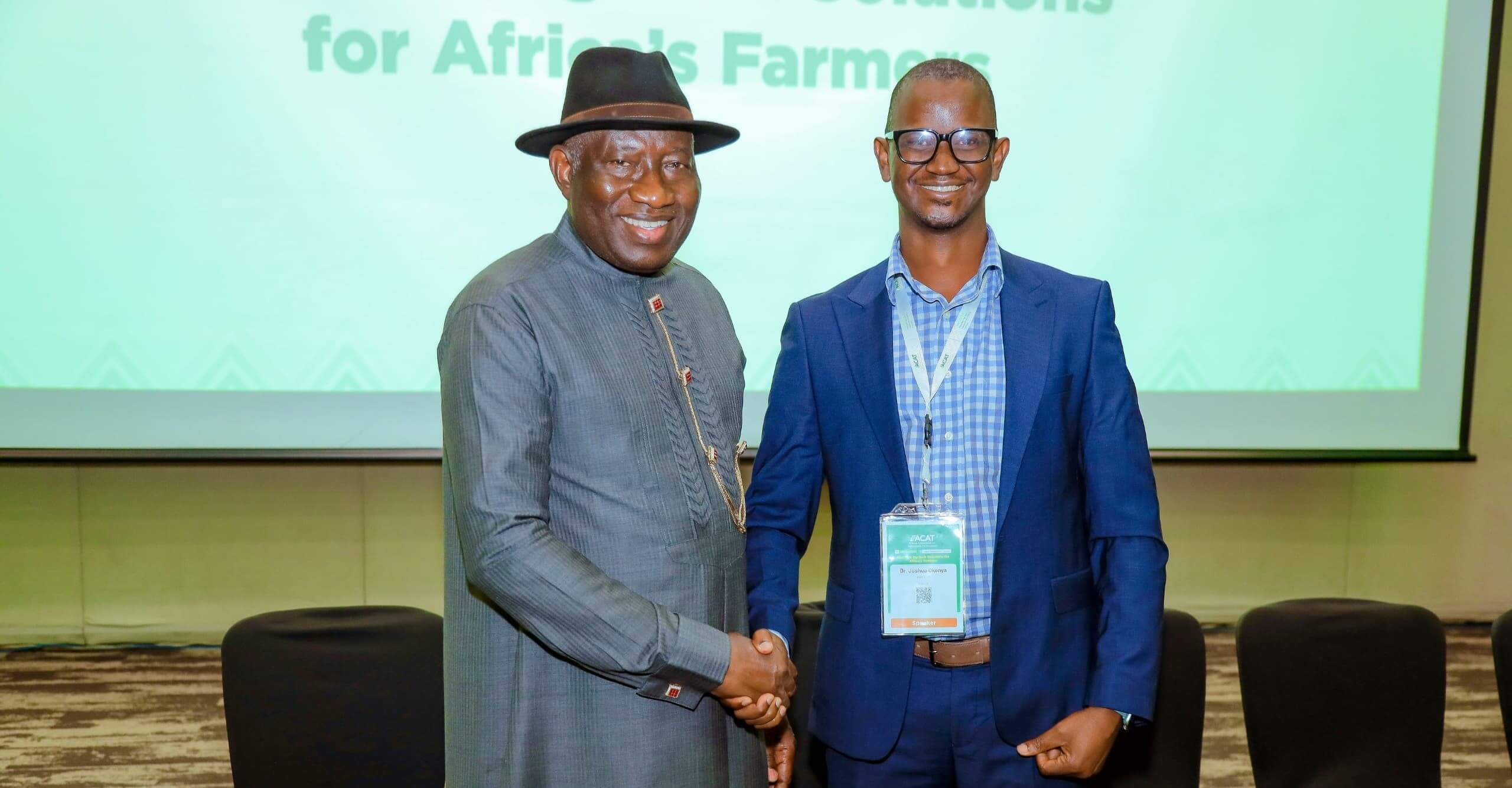
ASARECA Programme Officer for technologies and Innovation, Dr. Joshua Okonya reiterated the ultimate message of addressing the needs of last mile. “Let us keep in mind that until research products reach the farmers and change the livelihoods, we as researchers will have not achieved much,” Dr. Okonya highlighted some critical forward looking actions including involvement of multiple stakeholders in new innovation models to achieve results faster and to scale; the need to engage financial institutions; scaling of technologies in small packs; use of available digital platforms for improvement of crop production; and allowing the private sector the space to take up innovations to scale.
